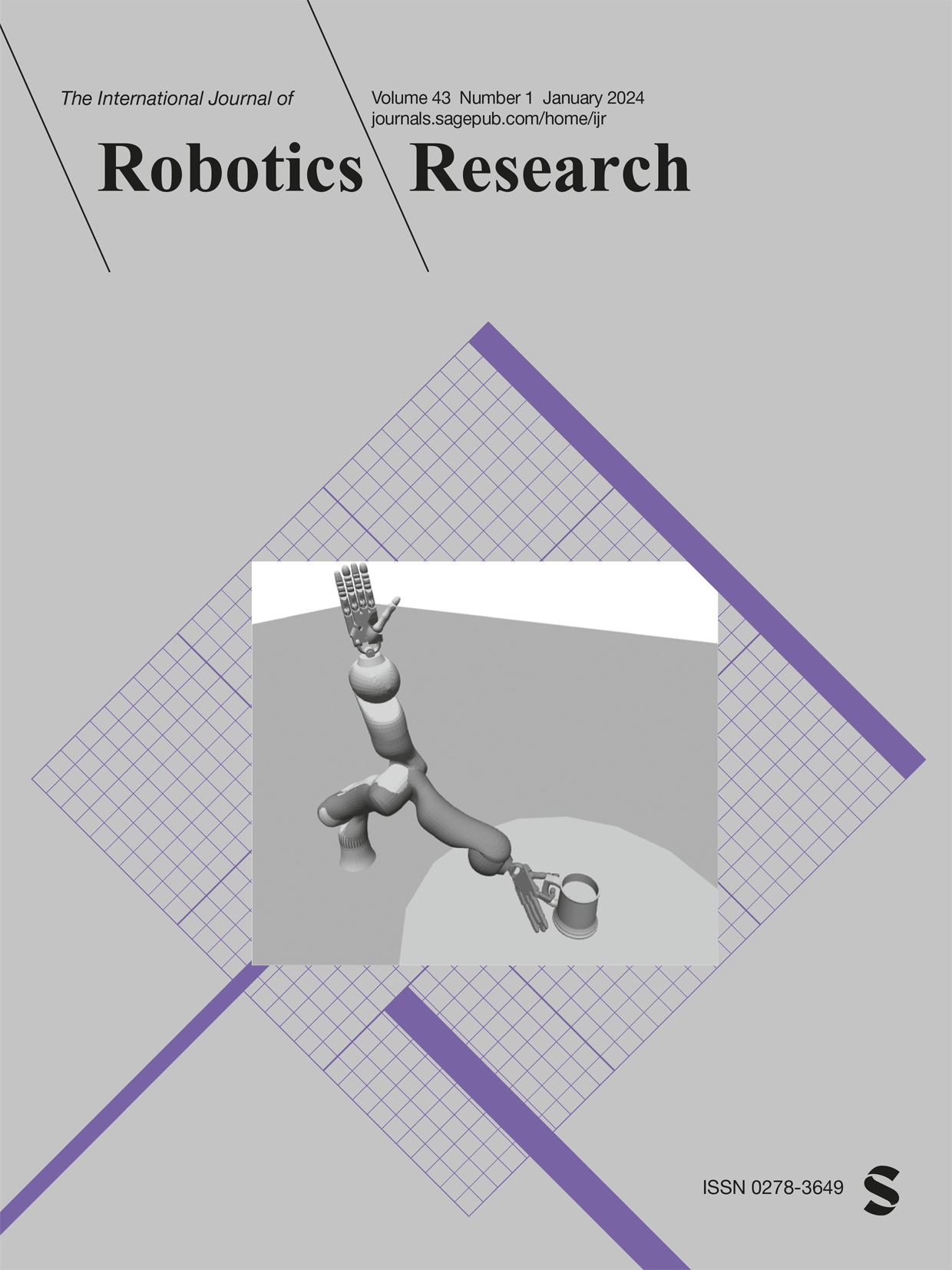基于Voronoi树的连续pomdp自适应离散化
IF 5
1区 计算机科学
Q1 ROBOTICS
引用次数: 0
摘要
求解连续部分可观察马尔可夫决策过程(pomdp)是一个具有挑战性的问题,特别是在高维连续动作空间中。为了缓解这一困难,我们提出了一种新的基于采样的在线POMDP求解器,称为使用V - oronoi树(ADVT)的自适应D离散化。它采用蒙特卡罗树搜索,结合自适应离散化的动作空间和乐观优化,有效地对高维连续动作空间进行采样,并计算出执行的最佳动作。具体来说,我们使用称为Voronoi树的分层划分自适应地离散每个采样信念的动作空间,这是一种二进制空间划分,它隐式地保持单元的划分为从单元中采样的两点的Voronoi图。ADVT使用估计的单元格直径形成单元格内动作值函数的上置信度界,指导蒙特卡罗树搜索扩展和动作空间的进一步离散化。这使得ADVT能够更好地利用与动作值函数相关的局部信息,与现有的求解器相比,可以更快地识别动作空间中最有希望的区域。Voronoi树保持了分区和估计每个细胞直径的成本很低,即使在高维空间中,需要许多采样点来覆盖空间。此外,ADVT处理连续的观察空间,通过采用观察渐进扩大策略,以及加权粒子表示的信念。实验结果表明,与现有方法相比,ADVT在高维连续动作空间上的可扩展性明显更好。本文章由计算机程序翻译,如有差异,请以英文原文为准。
Adaptive Discretization using Voronoi trees for continuous pOMDPs
Solving continuous Partially Observable Markov Decision Processes (POMDPs) is challenging, particularly for high-dimensional continuous action spaces. To alleviate this difficulty, we propose a new sampling-based online POMDP solver, called A daptive D iscretization using V oronoi T rees (ADVT). It uses Monte Carlo Tree Search in combination with an adaptive discretization of the action space as well as optimistic optimization to efficiently sample high-dimensional continuous action spaces and compute the best action to perform. Specifically, we adaptively discretize the action space for each sampled belief using a hierarchical partition called Voronoi tree, which is a Binary Space Partitioning that implicitly maintains the partition of a cell as the Voronoi diagram of two points sampled from the cell. ADVT uses the estimated diameters of the cells to form an upper-confidence bound on the action value function within the cell, guiding the Monte Carlo Tree Search expansion and further discretization of the action space. This enables ADVT to better exploit local information with respect to the action value function, allowing faster identification of the most promising regions in the action space, compared to existing solvers. Voronoi trees keep the cost of partitioning and estimating the diameter of each cell low, even in high-dimensional spaces where many sampled points are required to cover the space well. ADVT additionally handles continuous observation spaces, by adopting an observation progressive widening strategy, along with a weighted particle representation of beliefs. Experimental results indicate that ADVT scales substantially better to high-dimensional continuous action spaces, compared to state-of-the-art methods.
求助全文
通过发布文献求助,成功后即可免费获取论文全文。
去求助
来源期刊
CiteScore
22.20
自引率
0.00%
发文量
34
审稿时长
6-12 weeks
期刊介绍:
The International Journal of Robotics Research (IJRR) has been a leading peer-reviewed publication in the field for over two decades. It holds the distinction of being the first scholarly journal dedicated to robotics research.
IJRR presents cutting-edge and thought-provoking original research papers, articles, and reviews that delve into groundbreaking trends, technical advancements, and theoretical developments in robotics. Renowned scholars and practitioners contribute to its content, offering their expertise and insights. This journal covers a wide range of topics, going beyond narrow technical advancements to encompass various aspects of robotics.
The primary aim of IJRR is to publish work that has lasting value for the scientific and technological advancement of the field. Only original, robust, and practical research that can serve as a foundation for further progress is considered for publication. The focus is on producing content that will remain valuable and relevant over time.
In summary, IJRR stands as a prestigious publication that drives innovation and knowledge in robotics research.

 求助内容:
求助内容: 应助结果提醒方式:
应助结果提醒方式:


